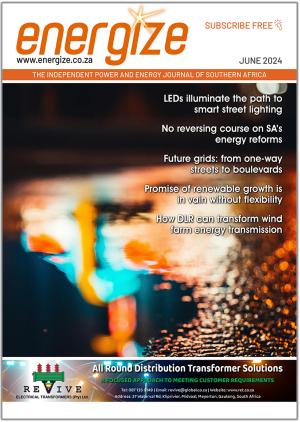The Mine Water Coordinating Body (MWCB), a prominent public-private collaborative vehicle, recently joined hands with the Impact Catalyst to strengthen its vision of empowering local communities in Mpumalanga.
“A number of initiatives by our stakeholders are currently underway where it was decided to share available resources, avoid duplication, enhance the impact and value of these initiatives to the people on the ground and leverage additional support to ensure a sustainable positive impact on the communities in South Africa”, says Carla Hudson, MWCB Programme Manager.
The MWCB was established, as a result of a SWPN Working Group, in 2016 by the Department of Water and Sanitation (DWS), Department of Minerals and Energy (DMRE), five mining companies (Anglo American, Exxaro, Glencore, South32 and Sasol) in the Mpumalanga Coalfields, and Eskom. This consortium aims to, to address mine water challenges in the Upper Olifants Catchment. This was later expanded to include the environmental, social, and economic challenges that arise from mine and power station closures.
The Impact Catalyst has already been instrumental in harnessing expertise of various organisations, including Anglo American, Exxaro, The Council for Scientific and Industrial Research (CSIR), Zutari and World Vision South Africa (WVSA) who are committed to addressing socio-economic developmental objectives such as alleviating poverty and promoting equality through job creation and improved healthcare.
The Impact Catalyst is expanding its socio-economic impact nationally, and it has identified opportunities to scale some of high impact projects into Mpumalanga to provide benefits to the communities. “The Impact Catalyst is impacting people’s lives in Limpopo. To support our partners we have decided that Mpumalanga and Northern Cape are areas of great need where Impact Catalyst can provide support to socio-economic development”, says Charl Harding, Impact Catalyst Manager.
The collaboration between Impact Catalyst and MWCB allows corporate initiatives to scale and thus enable them to have a greater impact on society. “The Mine Water Coordination Body Steering Committee is looking forward to a productive relationship with the Impact Catalyst”, adds Hudson.
The Impact Catalyst was designed to be an agent for collaboration and builds partnerships across various sectors to combine their strengths and contributions into large scale collective impact.
Through this strategically focused partnership, the MWCB hopes to provide a collaborative platform for collective, integrated and sustainable mine water management in the Upper Olifants Basin, Mpumalanga. MWCB facilitates a regional mine water management approach and deems it important to strengthen their relationship with key role players especially private and public sectors, and importantly, the local communities that will ultimately derive benefits from the various initiatives.
“The partnership between MWCB and Impact Catalyst is a key milestone as the two organisations compliment each other in their efforts to provide socio-economic development, so both organisations are combining forces to drive change in Mpumalanga as a collective”, adds Harding.
The Impact Catalyst seeks to expand its partnerships in Mpumalanga and provide the necessary support to socio-economic development in the area.
For more information visit: www.impactcatalyst.co.za
Contact Andile Maphumulo, Impact Catalyst , Tel 066 474-1927, andile.maphumulo@zutari.com
















